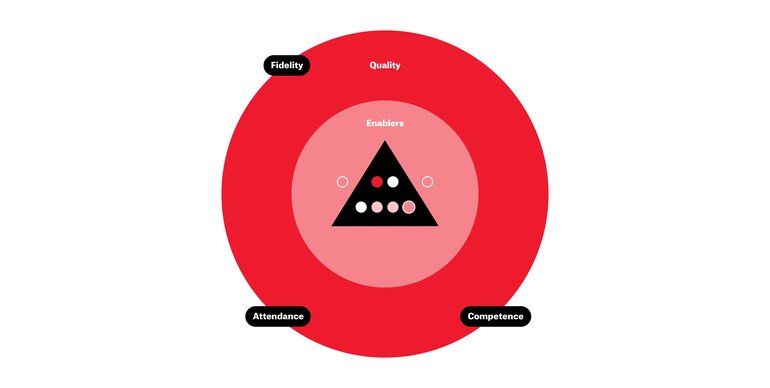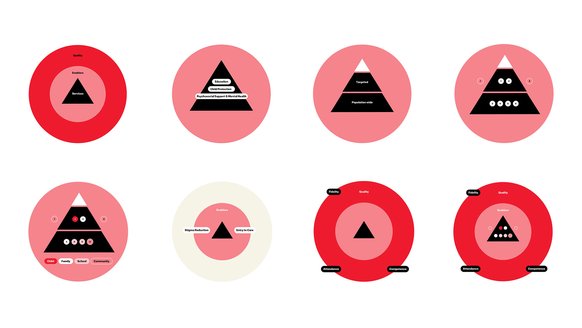A common approach
“Stigma is universal but impacts locally. Also, in conflict-affected communities, there are multiple stigmas. While many interventions address one stigma, we aim to develop a common approach which can be used across stigmas and settings, increasing its relevance.”
Kim Hartog, Researcher
Left behind
- Stigmatisation is manifest in discriminating forms of behaviour such as rejection, preferential treatment and targeted violence
- It reduces a child’s life chances and can have a significant negative impact on their wellbeing
- Interventions to reduce stigma have typically focused on adults - leaving children behind
A systematic review (read more here) concluded that children are under-addressed in stigma reduction strategies and that across stigmas similar strategies are applied. Formative research in DR Congo (read this) confirmed the similarities between stigmas, at the same time underlining the impact of context on stigmatisation.
IMPACTING CHILDREN
STRETCH - Stigma Reduction to Trigger Change - aims to build on and create community demand for stigma reduction. It stands out given its focus on children and adolescents and the aim to be applicable across stigmas. While STRETCH is intended to be implemented in its entirety, for reasons of feasibility components can be implemented independently.
A manuscript describing the STRETCH development and adaptation process has been submitted to a journal and will be shared once accepted.
MULTI-LEVEL RESPONSE
STRETCH consists of four parts:
- Organisational Reflection: focuses on stigma reduction within the implementing organisation
- Community Relevance: identifies stigmas prevalent in a community before setting up a local committee to guide implementation
- Create Demand: triggers community-wide reflection
- Targeted Actions: employs different strategies to reduce stigmatisation
Download this visual to see the different elements that make up STRETCH.
COMMUNITY TALES
Community Tales is a key aspect of STRETCH. Developed in partnership with Vandejong Creative Agency and supported by the Dutch Relief Alliance, the card game uses a fictional scenario to facilitate players to reflect on stigmatisation, its consequences and potential actions to address it. To access the online version of the game, contact kim.hartog@warchild.nl
Our partners
STRETCH is driven by collaboration with partners from the humanitarian sector and beyond.
These partners include:
Researchers supporting STRETCH:
Dr. Ruth Peters of the Vrije Universiteit is specialized in measuring stigma and dealing with leprosy-related stigma.
Dr. Brandon Kohrt is a medical anthropologist, psychiatrist and Adjunct Associate Professor of the Duke Global Health Institute.
Who does what? Vandejong: Creative Agency producing user-friendly design Elva: The Data Science partner innovating mobile data collection Ten Have Change Management: The Knowledge partner on community driven change TPO Uganda: The Local Implementation partner working to empower communities to improve their mental health and socio-economic well-being, providing essential insights for adapting the intervention Dutch Relief Alliance: Our funding partner – a coalition of 15 Dutch aid and humanitarian organisations in partnership with the Netherlands Ministry of Foreign Affairs.
Measuring stigma
We conducted a systematic review to assess how stigma among children and adolescents in low- and middle-income countries has been measured so far, and what these scales measure exactly. It will inform our upcoming feasibility and effectiveness studies. The review demonstrated that current measures failed to reflect the complexity of the stigmatisation process.
The limitations of the current measures make it challenging to inform interventions and measure change. For more analysis, read the full paper.
Our research agenda
STRETCH is ready for a pilot trial. This means that we will conduct a process evaluation to assess the method's feasibility (including acceptability) in several communities. We will also prepare the correct measurement instruments and assess potential trends in outcomes among adolescents facing stigmatisation.
Research and development
How we ensure our work with children is effective

The War Child Care System is made up of nine Core Interventions, developed to address the urgent needs of conflict-affected children and their communities. These interventions are supported by a number of tools and enabling trajectories that serve to promote access to care and reduce stigmatization.
Meet our Research and Development Team
Kim is a PhD candidate at the University of Amsterdam. Kim is also a member of War Child’s Research and Development team, where she leads our efforts to develop stigma reduction approaches for use in humanitarian settings.

